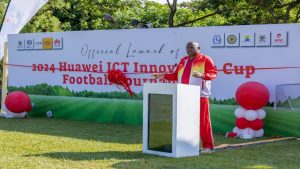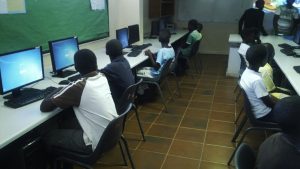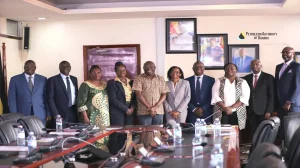Share
East African countries have unanimously decided to build a regional satellite that would be fully owned by them. The satellite’s principal goal will be to efficiently simplify communication within the region, and this endeavor will be followed with zeal.
This joint endeavor represents a significant advancement in the region’s aim of technical independence and self-reliance. The plan to develop a common satellite represents East African nations’ united aim to use space technology to improve communication networks, boosting regional connection and collaboration.
The decision was made at the Ministerial Meeting for the Development of ICT Infrastructure under the Northern Corridor Integration Projects (NCIPs) held in Nairobi, Kenya on Thursday, where all regional ICT ministers agreed to expedite the modalities of establishing a Regional Owned Satellite for communication that will provide high-quality, dependable broadband internet services and broadcasting capabilities.
This endeavor is projected to not only improve communication skills throughout East Africa, but also to contribute to the region’s general economic and social growth. The joint satellite project intends to minimize East African countries’ reliance on foreign communication infrastructure and put them at the forefront of space technology use. The initiative is set to open up new prospects for innovation, research, and cross-border cooperation in the fast developing space technology sector as the participating nations combine their resources and experience.
The ministers also decided to expedite the formation of an East African Single Digital Market to improve technical efficiency within Partner States by promoting and supporting start-ups, providing shared access to capital financing, co-funding research, and other initiatives. The Ministers were aware that this (EAC block of around 174 million people) would provide a bargaining platform for foreign technology corporations like as Google, Amazon, and Microsoft.
The Ministers urged the Technical team to hasten the execution of the Memorandum of Understanding (MoU) on Cyber Security in order to confront new cyber threats and emerging technologies through coordinated efforts. Member countries welcomed progress on the implementation of e-services across the Region, including a data sharing framework, full integration of mobile financial services, and mutual access to secure and reliable information, as a means of improving communication and regional relationships.
Similarly, the Ministers praised previous successes, such as the operationalization of One Network Area (ONA) for phone, data, and SMS, which has resulted in a 900-fold increase in traffic across Partner States, as well as cross-border national backbone connections.
Hon. Chris Baryomunsi, Minister of ICT and National Guidance of the Republic of Uganda, Hon. Michael Makuei Lueth, Minister of Information, Communication Technology, and Postal Services of the Republic of South Sudan, and Mr Gordon Kalema, Director General of Digital Transformation from the Ministry of ICT and Innovation of the Republic of Rwanda, were present during the meeting.











